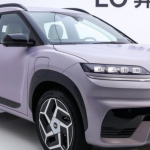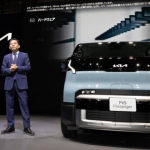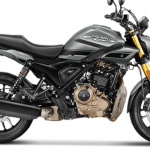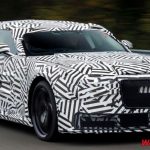Volvo Trucks, a global leader in heavy-duty commercial vehicles, has reached a remarkable milestone in its journey toward sustainable transportation. The company’s fleet of electric trucks has collectively covered over 250 million kilometers worldwide, resulting in an estimated reduction of 213,000 tonnes of CO₂ emissions compared to diesel-powered trucks.
This achievement marks a major step in the global transition to cleaner logistics and reinforces Volvo’s commitment to net-zero emissions by 2040. It’s not just a technological triumph — it’s a testament to how the transportation industry is evolving to meet the challenges of climate change and environmental responsibility.
A Major Milestone in Green Mobility
When Volvo first launched its electric truck lineup in 2019, the vision was clear: to build a future where heavy-duty transportation could be both powerful and planet-friendly. Fast forward to 2025, and Volvo’s electric trucks have become a familiar sight across Europe, North America, and Asia.
Covering 250 million kilometers (155 million miles) is no small feat. It proves that electric mobility is not limited to passenger cars but can successfully power even the heaviest and most demanding segments of road transport.
Volvo Trucks’ achievement shows how innovation and environmental consciousness can go hand in hand — proving that sustainability doesn’t have to compromise performance or profitability.
The Environmental Impact: 213,000 Tonnes of CO₂ Saved
The significance of Volvo’s achievement extends far beyond kilometers traveled. The 213,000 tonnes of CO₂ saved represent a tangible reduction in greenhouse gas emissions, demonstrating the real-world benefits of electrification.
To put this into perspective:
- It’s equivalent to the annual CO₂ emissions from 45,000 passenger cars.
- It represents over 500,000 barrels of diesel fuel saved.
- It prevents millions of liters of pollutants from entering the atmosphere.
Volvo’s data reveals that the adoption of electric trucks is not just an environmental gesture — it’s a measurable, impactful move toward a low-carbon global logistics network.

How Volvo Electric Trucks Are Changing the Game
Volvo Trucks currently offers a full range of electric vehicles, from urban distribution models to long-haul heavy-duty trucks. Each model combines cutting-edge technology with the same rugged reliability Volvo has been known for for decades.
1. Diverse Electric Truck Portfolio
- Volvo FL Electric – Ideal for city deliveries and waste collection.
- Volvo FE Electric – Designed for regional and urban distribution.
- Volvo FM Electric – Handles heavy logistics and regional transport.
- Volvo FH Electric – The flagship for long-distance haulage.
- Volvo FMX Electric – Built for construction and tough terrain operations.
This extensive range allows Volvo to serve multiple industries — from food and parcel delivery to construction and manufacturing — all while helping businesses reduce their carbon footprint.
2. Advanced Battery Technology
Volvo’s latest generation of batteries offers up to 540 kWh capacity, giving trucks a range of up to 450 km (280 miles) on a single charge. These batteries are designed for fast charging, capable of reaching 80% in just 90 minutes, minimizing downtime for fleet operators.
3. Power and Performance
Electric trucks from Volvo deliver instant torque, ensuring smooth acceleration even under heavy loads. Their regenerative braking system recovers energy while slowing down, improving efficiency and extending battery life.
4. Smart Connectivity and Telematics
All Volvo electric trucks come equipped with smart telematics systems that monitor vehicle performance, optimize routes, and track charging patterns. This helps fleet managers ensure maximum uptime and cost efficiency.
Real-World Success Stories
Volvo’s electric trucks are not experimental — they are working vehicles, already deployed by major logistics and transport companies worldwide.
Europe
In Sweden, DB Schenker and DHL operate fleets of Volvo electric trucks for urban deliveries, significantly reducing city-center emissions.
North America
In California, Manhattan Beer Distributors uses Volvo VNR Electric trucks to deliver beverages across urban routes, cutting noise and air pollution.
Asia
Volvo’s electric trucks are now entering markets like India and South Korea, where governments are incentivizing clean transport solutions to tackle air quality and fuel dependency.
Each success story adds momentum to Volvo’s mission — proving electric trucks can thrive in diverse climates, terrains, and operating conditions.
Charging Infrastructure: The Key to Expansion
One of the biggest challenges in the electric mobility transition is charging infrastructure. To tackle this, Volvo is collaborating with partners, governments, and energy providers to build a robust global charging network.
In Europe, Volvo is part of the Milence joint venture — along with Daimler Truck and the TRATON Group (Scania and MAN) — to install at least 1,700 high-performance charging stations for heavy trucks across the continent by 2028.
These fast-charging hubs will play a crucial role in enabling long-haul electric trucking, helping businesses confidently transition their fleets to zero-emission alternatives.
Economic Benefits for Businesses
Beyond environmental gains, electric trucks offer long-term economic advantages for logistics operators.
1. Lower Operating Costs
Electric trucks have fewer moving parts than diesel engines, reducing maintenance and repair expenses by up to 30–40%.
2. Reduced Fuel Costs
Electricity is cheaper and more stable in price than diesel, offering significant cost savings per kilometer driven.
3. Regulatory Incentives
Governments worldwide are offering tax benefits, purchase subsidies, and toll exemptions for electric trucks, improving return on investment for fleet owners.
4. Improved Brand Image
Sustainability has become a key competitive differentiator. Companies adopting green fleets are seen as industry leaders and attract eco-conscious clients and investors.
Volvo’s Vision for the Future
Volvo Trucks aims to make 50% of its global truck sales electric by 2030, and reach net-zero emissions by 2040.
To achieve this, the company is investing heavily in:
- Battery innovation – improving energy density and charging speed.
- Hydrogen fuel cell technology – for longer-range applications.
- Circular production – ensuring components are recyclable and sustainable.
Volvo also focuses on training drivers and service technicians to adapt to electric mobility, ensuring a seamless transition for transport businesses.
The Broader Impact: Driving Global Change
The milestone of 250 million kilometers doesn’t just symbolize Volvo’s success — it highlights a global shift in commercial transportation. As more cities enforce low-emission zones and as corporations set sustainability targets, electric trucks are no longer the future — they are the present.
By showcasing that large-scale electric truck operations are possible and profitable, Volvo is inspiring competitors and partners alike to accelerate the move toward clean transport.
This ripple effect contributes directly to global climate goals, helping nations reduce their carbon footprint and dependence on fossil fuels.
Final Thoughts: A Revolution on Wheels
The Volvo Electric Trucks’ 250 Million km milestone is not just a number — it’s proof that sustainable heavy transport is achievable today. By saving 213,000 tonnes of CO₂, Volvo has demonstrated that environmental responsibility and business performance can go hand in hand.
With each kilometer traveled, Volvo’s electric trucks are paving the way for a greener, smarter, and more resilient future — one where progress doesn’t come at the planet’s expense.

Hello, my name is Muskan Kumari and I am an experienced Digital Marketer. I have been blogging for the last 3 years and I have special interest in SEO. Here I give you easy bikes and writes easy-to-understand reviews and news about the latest bikes, helping readers choose the best options.. My aim is to always provide you with accurate, new and useful information.










